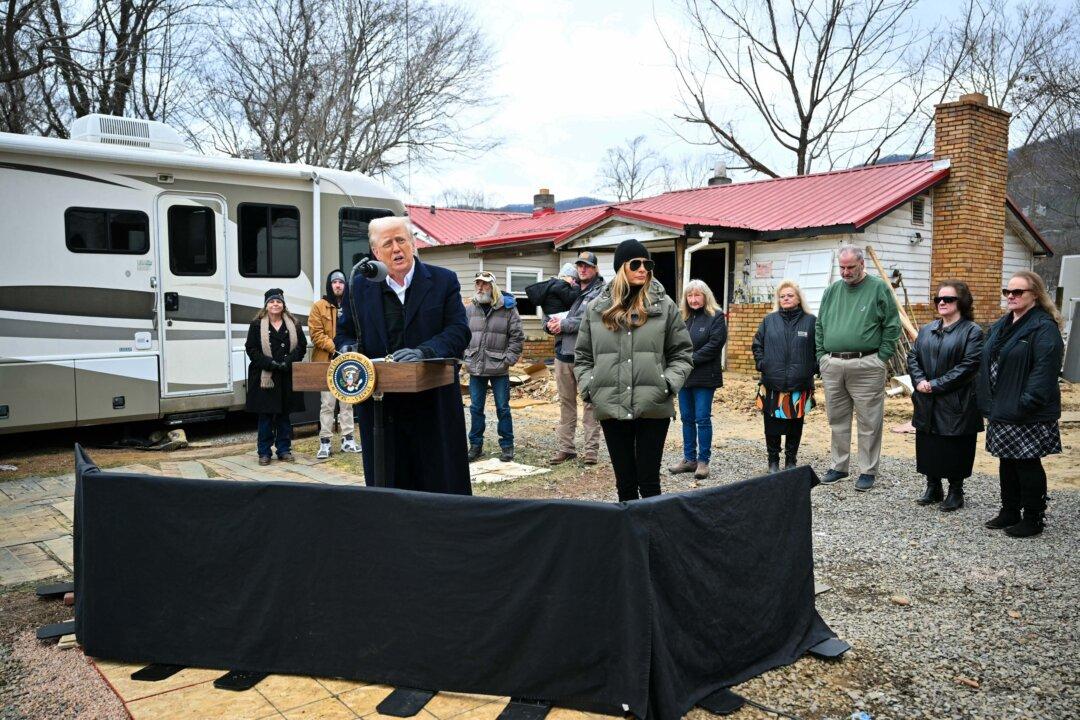President Donald Trump said he would be signing an executive order to start the process of fundamentally overhauling or “getting rid of” the Federal Emergency Management Agency (FEMA), while touring areas in western North Carolina on Jan. 24 that were devastated by Hurricane Helene in 2024.
Trump made the comments at a press conference in Fletcher, North Carolina, a small town close to Asheville. He criticized the Biden administration’s response to Hurricane Helene, a catastrophic Category 4 tropical cyclone that tore through the southeast in late September 2024, leaving tens of billions of dollars in destruction and killing more than 200 people across several states.





